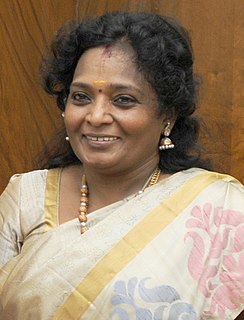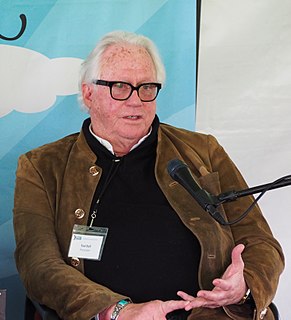A Quote by Peter Thiel
People don't want to believe that technology is broken. Pharmaceuticals, robotics, artificial intelligence, nanotechnology - all these areas where the progress has been a lot more limited than people think. And the question is why.
Related Quotes
You can't just stop technological progress. Even if one country stops researching artificial intelligence, some other countries will continue to do it. The real question is what to do with the technology. You can use exactly the same technology for very different social and political purposes. So I think people shouldn't be focused on the question of how to stop technological progress because this is impossible. Instead the question should be what kind of usage to make of the new technology. And here we still have quite a lot of power to influence the direction it's taking.
We have artificial intelligence, virtual reality, augmented reality, 3D-printing, robotics and nanotechnology that have changed the face of modern medicine. It is essential for Indian doctors to familiarise themselves with the latest developments to be able to control technology and not the other way around.
I think that the artificial-intelligence people are making a lot of noise recently, claiming that artificial intelligence is making huge progress and we're going to be outstripped by the machines. But, in my view, this whole field is based on a misconception. I think the brain is analog, whereas the machines are digital. They really are different. So I think that what the machines can do, of course, is wonderful, but it's not the same as what the brain can do.
What I advocate for is that, as soon as we get to the point when artificial intelligence can take off and be as smart, or even 10 times more intelligent than us, we stop that research and we have the research of cranial implant technology or the brainwave. And we make that so good so that, when artificial intelligence actually decides - when we actually decide to switch the on-button - human beings will also be a part of that intelligence. We will be merged, basically directly.
I advocate as a futurist and also as a member of the Transhumanist Party, that we never let artificial intelligence completely go on its own. I just don't see why the human species needs an artificial entity, an artificial intelligence entity, that's 10,000 times smarter than us. I just don't see why that could ever be a good thing.
I think whatever nation or whoever develops one artificial intelligence will probably make it so that artificial intelligence always stays ahead of any other developing artificial intelligence at any other point in time. It might even do things like send viruses to a second artificial intelligence, just so it can wipe it out, to protect its grounds. It's gonna be very similar to national politics.































